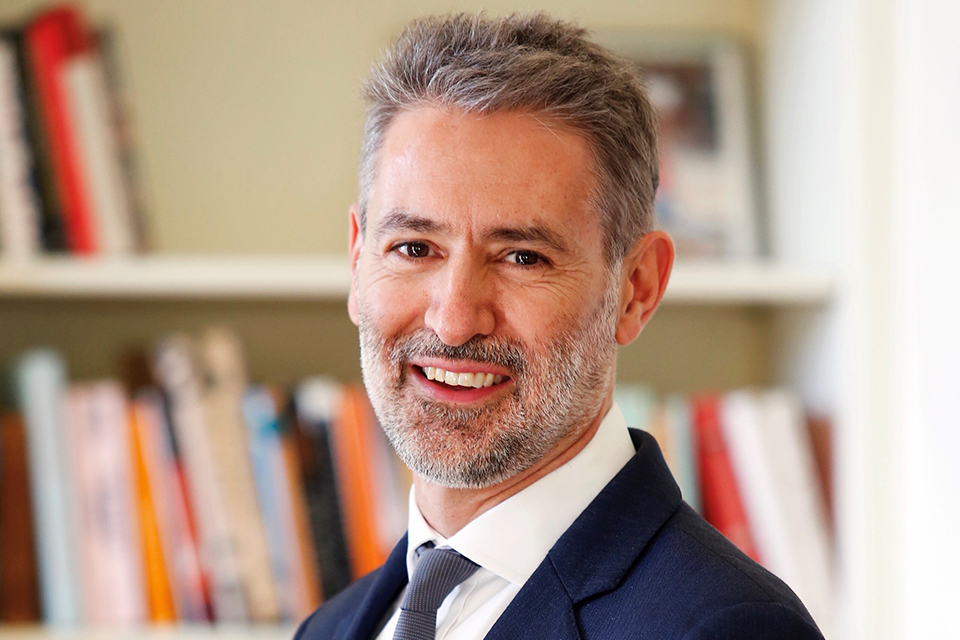- Culture Secretary kicks off negotiations to agree how much a TV licence will cost from 2022
- Comes as ten-strong panel is appointed to help shape future of public service broadcasting
- Group of experts includes Lord Grade and Nicola Mendelsohn
The negotiations will determine how much a TV licence costs, and as a result how much public funding the BBC and S4C will get, for at least five years from April 2022.
Culture Secretary Oliver Dowden has asked the BBC to set out its financial needs in line with its public purposes to inform his assessment of the appropriate level for the licence fee and to make sure it offers the best value for money for licence fee payers.
It comes on the day a panel of independent professionals from the worlds of broadcasting, production, journalism and technology are appointed to help shape the future of the UK’s public service broadcasting (PSB) system.
The Public Service Broadcasting Advisory Panel includes former Channel 4 chief executive Michael Grade, Facebook’s Vice President for Europe Nicola Mendelsohn, and former senior executives of Sky, ITN and Endemol Shine.
The panel will provide independent expertise and advice as part of the government’s strategic review of public service broadcasting (PSB), and look at the aims, purpose and overall governance of the UK’s current system.
Culture Secretary Oliver Dowden said:
Public service broadcasting is woven into the cultural fabric of the UK, but to remain relevant and meet people’s needs in the digital age it must evolve.
We are today taking a step forward in our roadmap for reform of the BBC and beginning negotiations to agree the cost of a TV licence from 2022 so that it offers fee payers the best value for money.
We are also bringing together experts from the media and tech industries to help shape the future of the public broadcasting system and explore the reforms needed to make sure it is modern, sustainable and successful.
The PSB Advisory Panel will advise ministers on whether public service broadcasting remains relevant and what a modern PSB system should contribute to economic, cultural and democratic life across the UK. It will explore if current funding and governance models are fit for purpose.
The panel will also support the government in considering the issues raised and recommendations resulting from Ofcom’s ongoing PSB Review.
Panellists will be expected to look at the impact of technology on audience habits and expectations as well as the financial sustainability of broadcasters and the overall structure of the TV market. This will include things such as video streaming.
Lord Grade said:
Our public service broadcasting remit has served the nation well for over 80 years but the time has come to review its relevance for the digital age and maybe redefine it.
The UK’s public service broadcasters are the BBC, ITV, Channel 4 and Channel 5, alongside STV in Scotland and S4C in Wales.
The panel will not consider or advise on the TV licence fee settlement process, which the government expects to conclude by the autumn of 2021. The new licence fee settlement will take effect from 01 April 2022.
Reflecting the government’s priorities, the Culture Secretary has written to the BBC asking it to set out how it will maximise its commercial revenues and continue to deliver savings. He has also asked the BBC to include details of any further plans to support those in vulnerable groups, including the elderly.
ENDS
Notes to editors
PSB Advisory Panel
The advisory panel will be chaired by the Secretary of State for Digital, Culture, Media and Sport and the Minister of State for Media and Data. The panel is expected to meet around six times over the course of a year. Panellists will not be paid for their work but any relevant expenses will be covered by DCMS. Read the terms of reference.
Panellists are appointed on the basis of their personal experience not as representatives of their respective current or former organisations. The full membership of the panel is:
- Baroness Bertin – Senior Advisor at BT and former Press Secretary to David Cameron;
- Miranda Curtis CMG – Non-Executive Director of Liberty Global;
- Sir Robbie Gibb – British broadcast journalist, former Head of BBC Westminster and Director of Communications at No.10;
- Lord Grade of Yarmouth CBE – Former Chief Executive of Channel 4, Chairman of the BBC Board of Governors, and Executive Chairman of ITV plc;
- Andrew Griffith MP – Member of Parliament for Arundel and South Downs, former Chief Operating Officer & CFO of Sky Group plc and Chairman of the Royal Television Society 2017 Cambridge Convention;
- John Hardie – Former CEO and Editor-in-Chief at ITN;
- Nicola Mendelsohn CBE – Vice President for Europe, Middle East, and Africa at Facebook;
- Dr Samir Shah CBE – Chief Executive of Juniper Productions, Chair of the Museum of the Home and former Deputy Chair, V&A;
- Sophie Turner Laing OBE – Former CEO of Endemol Shine Group;
- Jane Turton – Chief Executive of All3Media.
The UK’s system of public service broadcasting (PSB) is the result of a series of regulatory interventions designed to make sure UK audiences can enjoy a wide range of high-quality programmes which meets people’s needs and interests. There is no single piece of legislation covering public service broadcasting, but the Communications Act 2003 provides many of the key building blocks. For example, it designates certain broadcasters as ‘public service broadcasters’.
Licence Fee Settlement Negotiations
- This is the first settlement negotiation under the new governance and regulatory structure introduced in the last BBC Charter agreed in 2016. It is also the first under which Welsh-language broadcaster S4C is fully funded from the Licence Fee.
- We expect negotiations to have concluded by autumn 2021 to allow time for the necessary changes to be laid before parliament and be incorporated into the BBC’s budget for 2022/3.
- The Secretary of State has written to the BBC and S4C setting out the key factors they should consider when submitting their requests for the next settlement period, as is required by the Charter.
- The government is committed to transparency and consultation over the process and timetable of negotiations with the BBC on the licence fee settlement. Any formal letters on the matter between the government and the BBC or S4C will be published on the government’s website.
- In addition, there will be a formal meeting between the Culture Secretary and the BBC following his initial determination, and he will lay his final determination before Parliament to allow time for debate before the settlement takes effect.
- The last funding settlement took place in 2015. During those negotiations the government agreed with the BBC that responsibility for the over 75s concession would become the responsibility of the BBC by June 2020. The government and the BBC agreed this is a fair deal for the BBC – in return, we closed the iPlayer loophole, committed to increase the licence fee in line with inflation until 2022, and reduced a number of other BBC spending commitments.
- The overall licence fee model is guaranteed until the end of the BBC Charter period in 2027, but its reform from this point is something the government has promised to look at.
- The government has recently begun the process to appoint the next Chair of the BBC Board, with applications set to close on November 11th. This will be a hugely significant job in a changing media landscape and the Governance Code, including the public appointments principles, will be followed in making this appointment.
- The government continues to actively consider the responses to the public consultation on whether the criminal sanction remains appropriate for TV licence fee evasion given ongoing concerns about whether it is unfair and disproportionate. We will publish a response in due course.

